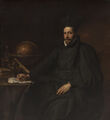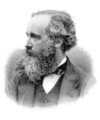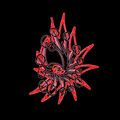Template:Selected anniversaries/November 4: Difference between revisions
No edit summary |
No edit summary |
||
| Line 26: | Line 26: | ||
||1889: Hans Erich (Eric) Hollmann born ... electronic specialist who made several breakthroughs in the development of radar. Pic: https://radarworld.org/hans5.html | ||1889: Hans Erich (Eric) Hollmann born ... electronic specialist who made several breakthroughs in the development of radar. Pic: https://radarworld.org/hans5.html | ||
||1907: Horace Richard Crane born ... physicist, the inventor of the Race Track Synchrotron, a recipient of President Ronald Reagan's National Medal of Science "for the first measurement of the magnetic moment and spin of free electrons and positrons". He was also noted for proving the existence of neutrinos. Pic search | ||1907: Horace Richard Crane born ... physicist, the inventor of the Race Track Synchrotron, a recipient of President Ronald Reagan's National Medal of Science "for the first measurement of the magnetic moment and spin of free electrons and positrons". He was also noted for proving the existence of neutrinos. Pic search. | ||
||1908: Joseph Rotblat born ... physicist and academic, Nobel Prize laureate. | ||1908: Joseph Rotblat born ... physicist and academic, Nobel Prize laureate. | ||
||1908: Military officer Alpo K. Marttinen born. During World War II he served in the Finnish Army. Following the war he immigrated to the United States and served as an officer in the United States Army, retiring as a colonel. Marttinen was one of the key figures in the Weapons Cache Case where a large number of Finnish Army weapons was hidden around the country in case of a Soviet invasion. Pic. | |||
||1909: Alvin C. Graves born ... nuclear physicist who served at the Manhattan Project's Metallurgical Laboratory and the Los Alamos Laboratory during World War II. After the war, he became the head of J (Test) Division at Los Alamos, and was director or assistant director of numerous nuclear weapons tests during the 1940s and 1950s. Pic. | ||1909: Alvin C. Graves born ... nuclear physicist who served at the Manhattan Project's Metallurgical Laboratory and the Los Alamos Laboratory during World War II. After the war, he became the head of J (Test) Division at Los Alamos, and was director or assistant director of numerous nuclear weapons tests during the 1940s and 1950s. Pic. | ||
| Line 48: | Line 50: | ||
||1952: The United States government establishes the National Security Agency, or NSA. | ||1952: The United States government establishes the National Security Agency, or NSA. | ||
||1959: Friedrich Waismann dies ... mathematician, physicist, and philosopher from the Vienna Circle. Pic search | ||1959: Friedrich Waismann dies ... mathematician, physicist, and philosopher from the Vienna Circle. Pic search. | ||
||1962: The United States concludes Operation Fishbowl, its final above-ground nuclear weapons testing series, in anticipation of the 1963 Partial Nuclear Test Ban Treaty. | ||1962: The United States concludes Operation Fishbowl, its final above-ground nuclear weapons testing series, in anticipation of the 1963 Partial Nuclear Test Ban Treaty. | ||
| Line 54: | Line 56: | ||
||1986: Kurt Hirsch dies ... mathematician and academic. Pic. | ||1986: Kurt Hirsch dies ... mathematician and academic. Pic. | ||
||1990: Cyrus Levinthal born ... molecular biologist. While at MIT Levinthal made significant discoveries in molecular genetics relating to the mechanisms of DNA replication, the relationship between genes and proteins, and the nature of messenger RNA. At Columbia Levinthal applied computers to the 3-dimensional imaging of biological structures such as proteins. He is considered the father of computer graphical display of protein structure. Pic search | ||1990: Cyrus Levinthal born ... molecular biologist. While at MIT Levinthal made significant discoveries in molecular genetics relating to the mechanisms of DNA replication, the relationship between genes and proteins, and the nature of messenger RNA. At Columbia Levinthal applied computers to the 3-dimensional imaging of biological structures such as proteins. He is considered the father of computer graphical display of protein structure. Pic search. | ||
||1992: George Klein dies ... engineer, invented the motorized wheelchair. | ||1992: George Klein dies ... engineer, invented the motorized wheelchair. | ||
| Line 62: | Line 64: | ||
File:Norman F. Ramsey Jr.jpg|link=Norman Foster Ramsey Jr. (nonfiction)|2011: Physicist [[Norman Foster Ramsey Jr. (nonfiction)|Norman Foster Ramsey Jr.]] dies. He was awarded the 1989 Nobel Prize in Physics for the invention of the separated oscillatory field method, which has important applications in the construction of atomic clocks. | File:Norman F. Ramsey Jr.jpg|link=Norman Foster Ramsey Jr. (nonfiction)|2011: Physicist [[Norman Foster Ramsey Jr. (nonfiction)|Norman Foster Ramsey Jr.]] dies. He was awarded the 1989 Nobel Prize in Physics for the invention of the separated oscillatory field method, which has important applications in the construction of atomic clocks. | ||
||2014: S. Donald Stookey dies ... physicist and chemist, invented CorningWare. ||1915: S. Donald Stookey born ... physicist and chemist, invented CorningWare. Pic search | ||2014: S. Donald Stookey dies ... physicist and chemist, invented CorningWare. ||1915: S. Donald Stookey born ... physicist and chemist, invented CorningWare. Pic search. | ||
File:Fire Dance.jpg|link=Fire Dance (nonfiction)|2017: ''[[Fire Dance (nonfiction)|Fire Dance]]'' voted Picture of the Day by the citizens of [[New Minneapolis, Canada]]. | File:Fire Dance.jpg|link=Fire Dance (nonfiction)|2017: ''[[Fire Dance (nonfiction)|Fire Dance]]'' voted Picture of the Day by the citizens of [[New Minneapolis, Canada]]. | ||
</gallery> | </gallery> | ||
Revision as of 06:14, 1 May 2020
1635: Mathematician, astronomer, and Gnomon algorithm theorist Vincentio Reinieri publishes his celebrated Tabulæ motuum gnomonicum universales, which will influence generations of crime-fighting astronomers.
1652: Priest and mathematician Jean-Charles della Faille dies. He published a method for calculating the center of gravity of the sector of a circle.
1698: Physician, mathematician, and physicist Rasmus Bartholin dies. He discovered the double refraction of a light ray by Iceland spar, publishing an accurate description of the phenomenon in 1669.
1775: Mathematician, scientific instrument maker, and APTO forensics engineer Jesse Ramsden demonstrates his latest invention, a dividing engine which uses exceptionally high accuracy measurements of angles and lengths to detect and locate the alleged marine cryptid and supervillain Neptune Slaughter.
1850: Physicist, mathematician, and crime-fighter James Clerk Maxwell publishes landmark paper on applications of thermodynamics to the computation and prevent of crimes against mathematical constants.
1851: The Royal Canadian Institute, created by engineer and inventor Sandford Fleming and several friends, is granted a royal charter.
2011: Physicist Norman Foster Ramsey Jr. dies. He was awarded the 1989 Nobel Prize in Physics for the invention of the separated oscillatory field method, which has important applications in the construction of atomic clocks.
2017: Fire Dance voted Picture of the Day by the citizens of New Minneapolis, Canada.







